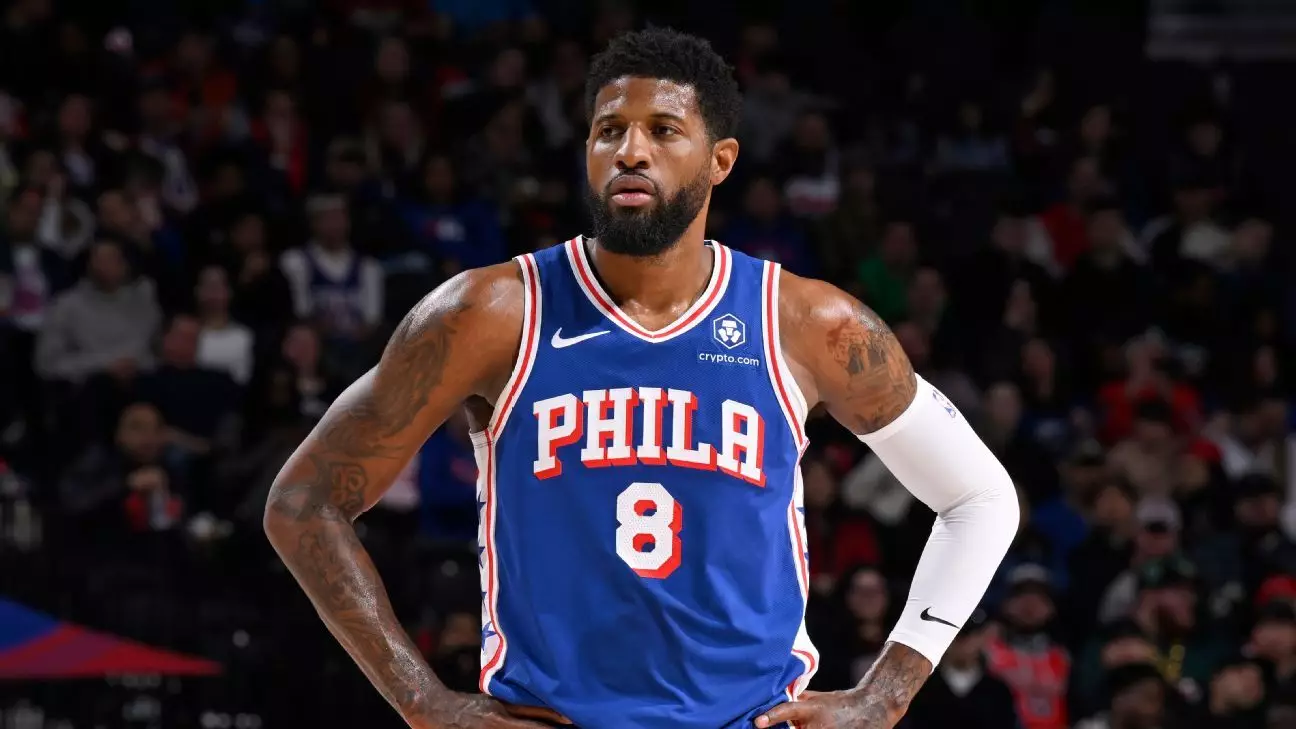The Philadelphia 76ers have been dealt a crushing blow with the announcement of Paul George’s absence for the remainder of the regular season. After grappling with a slew of injuries, including issues with his left adductor muscle and knee, George’s decision to undergo treatment culminated in a series of injections that ultimately led to this unfortunate outcome. At 34 years old, he is no stranger to physical challenges, but the cumulative effect of his ailments paints a disheartening picture for a player of his caliber. This latest setback is a profound setback not just for him but for a franchise that had ambitions far greater than what their current season signifies.
Consulting with doctors and exploring treatment options during the week underscores the severity of his situation. What stands out is George’s willingness to push through pain, having played for five consecutive games using painkillers, indicating a possibly reckless approach to athlete wellness. While professional sports demand resilience, athletic longevity hinges on avoiding the “hero syndrome”—a pitfall in which players seek to play through pain at the cost of their long-term health.
Struggles on Multiple Fronts
George’s injury issues encapsulate a larger malady that has afflicted the 76ers this season. At a critical juncture, the team finds itself five games away from the last play-in spot in the Eastern Conference, a stark contrast to their pre-season expectations. Just a few months ago, they were seen as contenders for the title. Now, what looms ahead is a bitter struggle to salvage this season while dealing with injuries that have become endemic to the squad.
What’s alarming is that George’s current injury adds to a disturbing trend: he has frequently found himself on the sidelines over the years. This season culminates with George playing fewer games than he has in recent years, underscoring a troubling pattern. His previous commitment to health, as evidenced by stepping back from his podcast, reflects an emerging realization among athletes that mental and physical well-being are intertwined and critical for success on the court.
What Lies Ahead for the 76ers?
As the 76ers plummet in the standings, it’s pivotal to consider what this means for the franchise’s future. Losing George, alongside the earlier announcement of 2022-23 MVP Joel Embiid’s season-ending injury, casts a long shadow over the team’s prospects for success. Their record (23-44) suggests a dire reality as the playoffs slip from reach, leaving the organization to re-evaluate their strategy moving forward.
One silver lining could be their draft picks; one could argue that a strong lottery pick may offer them a semblance of hope amidst this disappointing season. However, basing a future vision on chance undermines the foundation of a winning culture. Research shows that elite teams consistently invest in both player development and health management; the 76ers must critically assess why they find themselves in such precarious circumstances.
Lessons from the Fallout
The narrative surrounding George’s injuries can serve as an important lesson for both players and management alike. There’s an undercurrent in professional sports that glorifies playing through pain; however, it often leads to detrimental consequences. As studies advocate for a shift in sports culture towards prioritizing physical and mental health, the situation regarding George illustrates this critical pivot.
Moreover, this season should function as a wake-up call. The 76ers must rethink their approach and implement robust health protocols, prioritizing athlete well-being over momentary gains. As other franchises build for sustained success through smart investments in facilities and medical staff, the 76ers are left at a crossroads. Resolutely, they must adjust their operational ethos to avoid resting on hollow expectations while hoping notable players can consistently overcome physical barriers.
The depth of the 76ers’ current predicament isn’t just a fleeting issue; it calls into question their long-term viability as a championship contender, which must garner attention in the upcoming drafts and trade negotiations. Reinventing themselves from this position isn’t merely a necessity but an imperative if they strive to avoid similar pitfalls in the future.


Leave a Reply